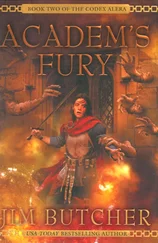Standing beside her, Bernard nodded judiciously. “About now, I think.”
Amara nodded and turned to the trumpeter next to her. “Signal the mules.”
The man saluted and immediately began blowing a quick signal on his horn. In the dark on the ground behind the wall, the mules went to work again. Their arms made a creaking sound, followed by a distinct report of wooden arm striking wooden crossbeam, followed by a rattling, thumping sound as the mule rocked wildly back and forth before settling down again. A few seconds later, the ground outside the walls was illuminated by a blossoming wall of flame, incinerating hundreds more vord.
But they never slowed down.
Bernard watched a while more, until every archer team in sight was down from the walls and in their second position. The legionares fought on doggedly, throwing down the enemy with sword and shield, spear and fury. “Any sign?” he asked Amara.
Amara swept her eyes over the sky. It was impossible to see even the stars of the moonless sky outside of the radius of the wall’s furylamps. “Not yet,” she reported.
Bernard grunted. “What about that reserve force?”
Amara looked up and down the walls for the telltale colored furylamps they were using to send messages. A flashing blue light would have indicated that someone had spotted the specialized troops Invidia had described. “Not yet,” Amara said.
Bernard nodded and continued watching the battle, unmoving, apparently unconcerned.
Amara knew it was a facade, for the benefit of the troops, and she tried to support it by appearing just as calm and steady as her husband—but despite her efforts, she bit her lip when she saw a young legionare , barely more than a boy, seized by a mantis’s scythes and tossed screaming into the swarm below. His companions in arms cut the vord responsible into quivering chunks—but they were too late for the youth. Wounded were being carried from the wall by field medicos every few seconds. Once more, the Marat and their gargants stood by, patiently waiting while dozens of wounded were loaded into their carrying harnesses, then turned to begin striding toward Garrison.
“This is getting tight,” Bernard muttered. “They’re pushing harder than they did before.”
“Should we sound retreat?”
Bernard stood calmly, looking down at the battle and giving no indication of his concern on his face or in his body language. “Not yet. We’ve got to know.”
Amara nodded again and struggled to control her outer self once more. It was difficult. Calm and composure in the face of personal danger was something she had been trained for, something she had mastered. Watching others carried away, screaming in agony—or worse, dying in perfect silence—in support of the plan she’d helped to shape and create was something else entirely. She hadn’t been ready for this. She’d had no talent whatsoever for watercrafting, and could barely make water roll across the bottom of a shallow pan, back at the Academy, when she’d been practicing hard. Now she wished she’d done even more. She would give anything to be able to let herself feel the horror that was hammering down on her without fearing that the sight of tears on her face might make things even worse.
She clenched her fists instead, forcing away the emotion. Later. She could let herself feel it later, she promised, when signs of panic among the command staff wouldn’t deal gaping wounds to the legionares’ morale.
She didn’t know how long she held herself there, rigid and still. Only moments, surely, but they felt like hours—hours of nightmare, suddenly broken by distant, crackling reports from the night sky overhead.
Amara snapped her gaze up to see fire-spheres blossoming there in balls of grass green, arctic blue, and glacial purple. Black shapes like swarming moths flickered near and around the flaming spheres—vordknights, thousands of them. “Bernard!”
Bernard glanced at her, then up, then grinned suddenly, and the explosion of another massive salvo from the mules cast his face in a feral, almost blood-thirsty combination of light and shadow. “Trying to sneak over the wall to take out the mules in the dark, when we couldn’t see them coming,” he said. “But the Placidas and the northerners found them first.” He pursed his lips for a moment, then said, “Glad they aren’t directly overhead.”
As if to punctuate Bernard’s statement, the corpse of a vordknight, missing its head and two-thirds of the surface of its wings, plunged down and landed on the ground beside one of the crewmen of the mules. The crewman jumped and let out a shriek of surprise, before falling onto his rear, earning a round of frantic-edged belly laughs from his crewmates.
More vordknights appeared, beginning to dive upon the crews of the mules—but each team of Knights Flora had retreated from the wall to its assigned war engine, and they began providing their mule crews with a deadly shield of withering archery. Vordknights fell from the skies and smashed to the earth like rotten fruit. One of them came down on the small ammunition wagon of fire-spheres behind one of the mules, and it exploded in a sudden angry bellow of fire that roared out and consumed the vordknight, the wagon, the mule, its screaming crewmen, and the archers who had been protecting them. Deadly shards of wood from the shattered wagon flew out in every direction, wounding more men on either side, and Amara saw one shard no less than four feet long completely transfix one legionare’s thigh, sending the man screaming to the floor of the battlements.
Amara made a gesture to the trumpeter, and the man sounded the call for an aerial attack. With a roar, hundreds of Citizens and Knights Aeris rose into the skies to do battle with the enemy in the darkness overhead. The sound of their windstreams was like the roaring of the sea crashing against stone cliffs. Each unit of Knights was led by Counts and Lords, many of them gifted in multiple disciplines of furycraft, and the number of exploding firecraftings overhead doubled and redoubled, a soaring panoply of brief-lived, swollen stars in every color imaginable. Roaring windstreams rose and fell in pitch and tone, making oddly musical harmonies amidst the flashes of chromatic fire.
Every eye in the whole of the Calderon Valley not being used to fight for survival was glued to the beautiful, deadly display.
“And now that our attention is on the sky,” Bernard said, “it’s time for the surprise attack. Your Lordship, if you would be so kind as to light the field.”
Lord Gram stood nearby and grunted acknowledgment. Though the Princeps had put Bernard in charge of the defenses, Amara’s husband had also served Gram for many years as one of the first Steadholders placed in the then-Count’s service. Now Gram was a Lord (granted, his lands had been overrun by the enemy, but he was still a Lord), and her husband had made an extra effort to show Gram courtesy, despite his pained jaw. Gram didn’t need it, Amara thought, and would have been perfectly comfortable following a simple order—but even in the face of ruin, Bernard had the presence of mind to be considerate. She supposed that, in a way, that sort of grace was symbolic of a great deal of what they were fighting for; the preservation of unnecessary beauty.
Gram stepped forward, lifted his hand, and casually held it out, palm up. Fire kindled in his cupped fingers, until a moment later a tiny form hovered there, just above the surface of his hand—a little feathered figure, its wings blurred into invisibility with their speed. The hot wind washing from them stirred Amara’s hair. Gram whispered something to the little fire fury, and flicked his wrist. The fiery hummingbird shot off into the night, gathering speed and brightening in intensity as it flew.
Читать дальше











